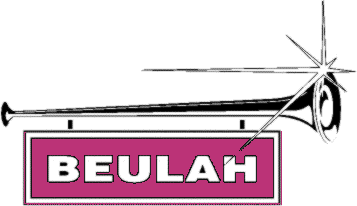|
"The Beulah
record label has always been one of the most idiosyncratic, and
therefore perhaps most interesting, of reissue marques. While the basic
character of Beulah remains the same as in its Compact Disc days, the
range of its present catalogue, driven now by the ease of downloading,
has been extended in remarkable fashion. Browsing the Beulah catalogue
is now rather like being in a 78rpm record shop: there are plenty of
recordings of short pieces available to whet your appetite for either
repertoire or artist, while at the same time there are numerous full
length works available if you wish to consolidate your collection with,
for instance, major symphonies. All of Beulah's transfers, as might be
expected of a distinguished reissue label, are of very high quality."
David Patmore writing in Classical
Recordings Quarterly
"I’m grateful to Beulah for turning out so many very fine transfers,
with no loss of the music but none of the surface noise. LP sound
without the hassle. " Brian
Wilson at Music Web Inernational
|
New for February
Many music lovers miss the sound
from vinyl pressings.
Many others have yet to discover how great the sound can be.
Most of our albums are mastered from vinyl LP pressings and earlier
recordings (generally before 1953) from 78 rpm discs. It is our ability
to
recreate, in the digital age, the sound from the disc era that many of
our customers find most enjoyable.
Unlike modern digital recordings
tracks in our
albums do contain some distortion, and the occasional surface noises,
but for many listeners these "defects" are soon forgotten.
Our albums are available from
many download and
streaming sites.
We highly
recommend downloading from  where you can download or stream in high quality,
for
the
same price as iTunes medium quality. where you can download or stream in high quality,
for
the
same price as iTunes medium quality.
Beethoven 250
Ludwig Van Beethoven was born in Bonn on 16 December
1770. A crucial figure in the transition between the classical and
romantic eras in classical music, he remains one of the most recognized
and influential musicians of this period, and is considered to be one
of the greatest composers of all time.
We shall feature here a Beethoven album each month.
This month we feature Antony Hopkins talking about
Beethoven Symphony No. 5 and how it is structured on the famous opening
notes.
New albums
What the Critics Say
"Mario Lanza had, still has for many people, a
valued place in popularising some of the big numbers of Italian opera:
one step up, as it were, culturally from Josef Locke‘the people’s
tenor’and perhaps one step down from the later Three Tenors, especially
Luciano Pavarotti.
It was, and is, all too easy to turn one’s nose up at the achievements
of a singer who couldn’t read music, but his records sold 350,000
copies as late as the 1990s and he won acclaim from serious reviewers:
following his release of extracts from Andrea Chénier, two of them
included on this Beulah release, John Freestone wrote in Gramophone of
the likelihood of his becoming ‘a power in the land of tenors’.
"The earliest of these recordings, Celeste Aida,
first appeared along with Voi lo sapete(not included here) on 78s. AR
(Alec Robertson) thought it ‘grievous that so opulent a voice ...
should be wasted in a mere display of physical prowess’.
I was less worried about the waste and more impressed by the singing
than I expected, it’s quite some time since heard Lanza.
As usuall, Beulah have brought up these recordings to sound well."
Brian Wilson at Musicweb
International
"By the time that Anderson recorded the Alto
Rhapsodyin 1952, with Fritz Reiner, time had robbed some of the rich
timbre, and the reviewers were still too taken with Kathleen Ferrier’s
recording to recommend the recording. Regular readers will know that I
hold a heretical aversion to ‘Kath’s’ voice, at least as preserved on
record. I’m sure that the 1952 recording has more body than the 1939
with Eugene Ormandy, but the latter–a classic of the gramophone –is
wisely chosen for this reissue. Inevitably, the sound is somewhat boxy,
but it’s good enough to remind us what a wonderful voice Anderson
possessed, and all but the tiniest degree of swish has been cleaned up
without preventing us from appreciating the voice.
"The Beulah reissue is worth its modest price for
the Alto Rhapsody alone, but the rest of the programme is worth having,
too. The great Alec Robertson, no less, thought Anderson more effective
in classical repertoire than in spirituals.I may be inclined to agree,
but I’m not complaining about her singing here."
Brian Wilson at Musicweb
International
|
